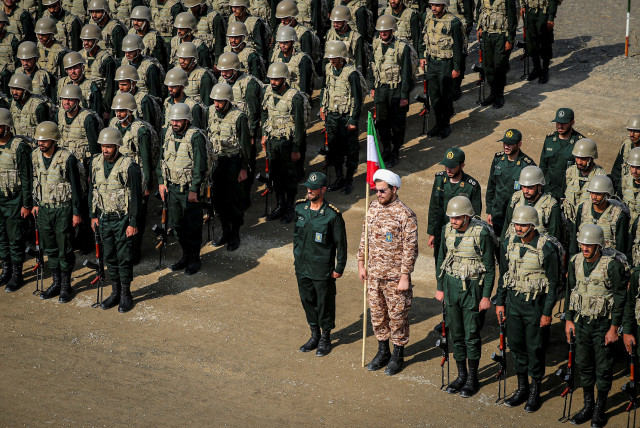Iran faces battle to boost birth rate to stop demographic 'black hole' - analysis

Iran may not have a new generation of the kind of men that led it in the 1980s-2000s. The birthrate issue is only one part of the larger battle.
Iran is facing declining birth rates. This has been an increasing issue in the last several years and one which the Iranian regime is keenly focused on.
A new report at Iran’s pro-regime Fars News says that the country is facing the prospect of large numbers of families who will only have one child, and the regime wants to warn the people about this population “black hole” that may lead to further demographic decline.
Last year, the Iranian Supreme Leader Ayatollah Khamenei also warned officials against an aging population and demographic decline. At the time the statistics in Iran said that the fertility rate was 1.71 children per woman. This is considered below the replacement rate, meaning that for every two people today, there will be fewer in the future. It also means many families are choosing to have one child or perhaps no children.
In many Western societies and also in places like China, South Korea and Japan, this trend is already clear. However, for the Iranian regime, which is a theocratic regime, the issue of increasing the number of children is important.
The declining demographics could be seen as a vote by the people against the regime since they don’t care about the religious pro-natal policies and don’t want large families that would please the regime’s view of how the world should be ordered.
The report in Iran’s media was candid in its views. It said that Iran now faces a future of children who have no siblings and the article argues that this leads to demographic decline and also harms society.
Why does Iran need a higher birth rate?
Historically in the 20th century, the issue of the “battle of the births” was a key element of Mussolini’s fascist agenda in Italy because it was believed that more children leads to a younger society that can produce more young men for national expansion. For Iran’s regime, this certainly is an issue, because it frequently boasts about its influence in the Middle East and how it is confronting the US and Israel. But if the country has internal problems, such as protests and an aging population, it won’t be able to fulfill the regime’s desire for controlling the Middle East.
The article at Fars News says that the aging crisis in Iran leads to many types of harm across society “because the development and progress of any society requires young manpower.” No young manpower, no more fast boats, missiles, and drones, for instance. The article argues that “three-person families,” by which they mean two parents and one child, will splinter society and lead to a spiral of decline.
“When we look a little more closely at families of three; we realize the bitter and unfortunate truths. Facts like children who will be deprived of having uncles, aunts.” This is because a single child has no brothers and sisters so their children won’t have “aunts and uncles,” in this view of demographic futures. “According to population experts, if the birth process in the country continues in the same way…in the not so distant years, we will enter a population black hole that may be impossible to get out of.”
Therefore, Iran is pushing a multi-year plan to increase the number of births. Considering the fact that most societies that attempted plans like this have failed, Iran has little chance of success under the current regime. If a religious theocracy can’t get people to have kids already despite endless propaganda, it’s unclear how any society would succeed in its stead, without improving the quality of life or prospects of the people.
Iran believes that families who have one child will increase numerous problems in society, including “failure, rejection… they do not experience the conditions that require mental and emotional maturity. Many times, because the real world is not completely in accordance with the wishes and desires of these children and does not meet their expectations, they suffer from frustration and incompatibility.”
Iran’s regime believes the current trend will lead to isolation among these families, bad “attitude and behavior” and bad decision, “tendency to isolation, depression, weakness in communicating with peers, paying too much attention to computer and solitary games, fear or hatred of being in social groups are among the characteristics of being an only child.”
The article says that having siblings can increase social spirit and help people manage relationships. While ostensibly the regime is arguing that children with siblings will have more “compassion” and ease in communicating and social situations; the overall message links more to the regime’s future challenges.
The regime’s entire investment in this issue is related to its desire to have more young men for the Basij militias and the IRGC, so it can continue its influence in the region and expand its power.
Iran invests heavily in long-term goals based mostly on its ability to employ people throughout the region. What that means is that Iran needs more Qasem Soleimanis, the famed IRGC commander. It appears the regime knows that the generation of men such as Soleimani and IRGC Aerospace commander Amir Ali Hajizadeh are fading from the scene, either because they were hit by missiles like Soleimani or because they simply get older.
Iran may not have a new generation of the kind of men that led it in the 1980s-2000s. The birthrate issue is only one part of the larger battle and the regime is being very candid about its challenges.
Jerusalem Post Store
`; document.getElementById("linkPremium").innerHTML = cont; var divWithLink = document.getElementById("premium-link"); if (divWithLink !== null && divWithLink !== 'undefined') { divWithLink.style.border = "solid 1px #cb0f3e"; divWithLink.style.textAlign = "center"; divWithLink.style.marginBottom = "15px"; divWithLink.style.marginTop = "15px"; divWithLink.style.width = "100%"; divWithLink.style.backgroundColor = "#122952"; divWithLink.style.color = "#ffffff"; divWithLink.style.lineHeight = "1.5"; } } (function (v, i) { });

